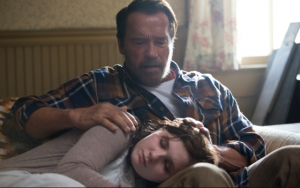RICHARD’S WEEKEND MOVIE REVIEWS FROM CP24! FRIDAY MAY 8, 2015.
 Richard’s CP24 reviews for “Hot Pursuit,” “Maggie” and “Going Clear: Scientology and the Prison of Belief” with anchor Rena Heer.
Richard’s CP24 reviews for “Hot Pursuit,” “Maggie” and “Going Clear: Scientology and the Prison of Belief” with anchor Rena Heer.
Watch the whole thing HERE!
 Richard’s CP24 reviews for “Hot Pursuit,” “Maggie” and “Going Clear: Scientology and the Prison of Belief” with anchor Rena Heer.
Richard’s CP24 reviews for “Hot Pursuit,” “Maggie” and “Going Clear: Scientology and the Prison of Belief” with anchor Rena Heer.
Watch the whole thing HERE!
 Richard’s “Canada AM” film reviews for “Hot Pursuit,” “Maggie” and “Going Clear: Scientology and the Prison of Belife.”
Richard’s “Canada AM” film reviews for “Hot Pursuit,” “Maggie” and “Going Clear: Scientology and the Prison of Belife.”
Watch the whole thing HERE!
 I’ll save some of you from having to read this whole review. If the idea of Arnold Schwarzenegger and zombies turns your crank, read on. If not click through to the next review.
I’ll save some of you from having to read this whole review. If the idea of Arnold Schwarzenegger and zombies turns your crank, read on. If not click through to the next review.
It’s a bit disingenuous to call “Maggie” a zombie movie. The word is never used in the film—instead they’re called necroambulists and “the infected”—and the body count is low. In fact, “The Walking Dead” usually features more carnage before the opening credits than in the whole of “Maggie,” but at its diseased heart it is a zombie movie, but one that takes a different tact than most others.
Here director Henry Hobson, who designed the title credit sequence for “The Walking Dead,” concentrates on one Midwestern family dealing with the stark reality that their daughter Magie (Abigail Breslin) is infected and soon some difficult choices will have to be made. The family’s doctor (Jodie Moore) presents father Wade (Schwarzenegger) with three viable options: send her to quarantine to die, administer a painful cocktail of drugs or… make it quick. Wade, who rescued his daughter from a medical facility, doesn’t want her to be taken to quarantine but can’t bring himself to do what must be done.
“Maggie” shatters several preconceptions. First it reconsiders what a zombie film can be. The gore happens off screen leaving time to concentrate on the psychological aspects of seeing friends and family change into something beyond their control. It’s a metaphor for disease or perhaps a comment on assisted suicide, or both. What it isn’t, exactly, is a horror film.
Those expecting Schwarzenegger to make “Total Recall with Zombies” are also in for a surprise. Here the larger than life actor tones it down, embracing the character actor phase of his career with an understated performance that relies more on his expressive face than his physicality to get the point across.
Breslin is also interesting as a young woman whose body is changing into something she can’t control. Stoic and sullen, occasionally she allows a hint of the pre-infected teenager she was show through and those moments are heartbreaking.
For all its angels, however, glacial pacing and Hobson’s love of intense close-ups bedevil the movie. This is an intimate story, so to a point the up-close-and-personal photography makes sense, but the director never met a close-up he didn’t love and over uses them throughout.
“Maggie” is a dark and gloomy piece of work with revelatory performances but plodding pacing that make Romero’s zombies look like speed demons.